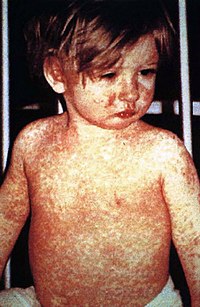
Morbidity and mortality in infant mountain gorillas (Gorilla beringei beringei): A 46‐year retrospective review
Sign Up to like & getrecommendations! Published in 2017 at "American Journal of Primatology"
DOI: 10.1002/ajp.22686
Abstract: Long‐term studies of morbidity and mortality in free‐ranging primates are scarce, but may have important implications for the conservation of extant populations. Infants comprise a particularly important age group, as variation in survival rates may… read more here.
Keywords: mountain gorillas; beringei; morbidity mortality; mortality ... See more keywords

Endangered mountain gorillas and COVID-19: One health lessons for prevention and preparedness during a global pandemic.
Sign Up to like & getrecommendations! Published in 2021 at "American journal of primatology"
DOI: 10.1002/ajp.23291
Abstract: The world's 1063 mountain gorillas (Gorilla beringei beringei) live in two subpopulations at the borders of the Democratic Republic of Congo, Rwanda, and Uganda. The majority of mountain gorillas are human-habituated to facilitate tourism and… read more here.
Keywords: mountain gorillas; mountain; gorilla; one health ... See more keywords

Intragroup Behavioral Changes Following Intergroup Conflict in Mountain Gorillas (Gorilla beringei beringei)
Sign Up to like & getrecommendations! Published in 2020 at "International Journal of Primatology"
DOI: 10.1007/s10764-020-00130-1
Abstract: Group-living animals face a number of threats from extragroup conspecifics: from individuals seeking mating opportunities to rival groups attempting to access limited resources. The consequences of intergroup interactions can therefore include loss of mates, increased… read more here.
Keywords: mountain gorillas; conflict; following intergroup; beringei ... See more keywords

Mountain gorillas maintain strong affiliative biases for maternal siblings despite high male reproductive skew and extensive exposure to paternal kin
Sign Up to like & getrecommendations! Published in 2022 at "eLife"
DOI: 10.7554/elife.80820
Abstract: Evolutionary theories predict that sibling relationships will reflect a complex balance of cooperative and competitive dynamics. In most mammals, dispersal and death patterns mean that sibling relationships occur in a relatively narrow window during development… read more here.
Keywords: reproductive skew; paternal kin; mountain gorillas;